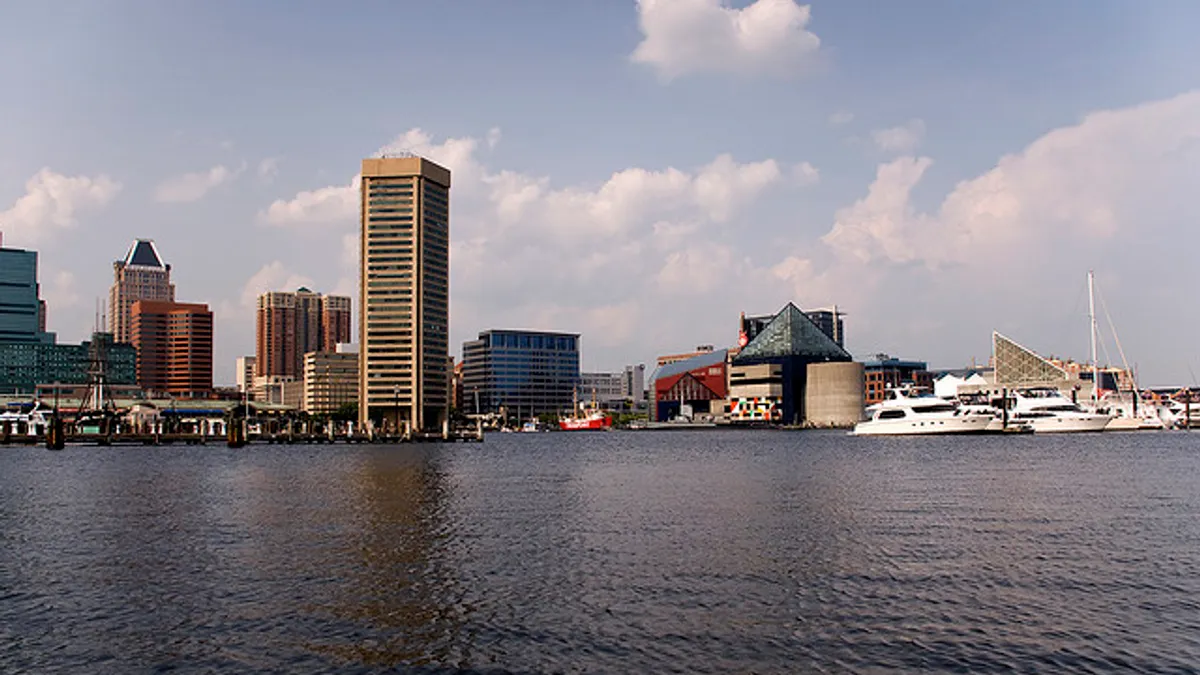Dive Brief:
-
The Maryland Public Service Commission (PSC) has rejected a proposal by Baltimore Gas & Electric (BGE) to recover the cost of building two microgrids, Microgrid Knowledge reports.
-
BGE proposed a surcharge on all its ratepayers to recover the cost of a $7 million, 2 MW microgrid and $9.2 million, 3 MW microgrid.
- The PSC ruled that BGE’s proposal was not in keeping with the competitive aspects of the state’s electricity reforms.
Dive Insight:
Several utilities are interested in building microgrids, but they are struggling over how to get paid for the investment.
Commonwealth Edison in Chicago would like to be able to add the cost to ratebase, but is having trouble moving the required legislation through the legislature.
Baltimore Gas & Electric also would like to build microgrids, but the staff of the PSC last month questioned whether or not the proposal is legal.
Both companies are owned by Exelon, the largest utility holding comany in the country by customer base. Pepco, the Washington utility recently acquired by Pepco, also has plans for microgrids in the nation's capital.
In Maryland, the PSC applauded BGE’s efforts to build two public purpose microgrids but rejected the utility’s plan.
BGE in December proposed a pair of microgrids at Edmondson Village in Baltimore City and at the Kings Contrivance Village Center in Howard County. The microgrids would have powered facilities such as grocery stores, pharmacies, clinics, gas stations and public buildings and shelters during an outage.
“Public purpose microgrids have the potential to improve reliability and resiliency and to facilitate the incorporation of new, sustainable technologies into our distribution network,” the PSC said, according to Microgrid Knowledge, which added that the PSC left open the possibility of the utility filing a revised plan.
In the filed plan, BGE proposed a surcharge to cover the costs of building and operating the microgrids. The utility also wanted shareholders to take on some of the financial risk and sought contributions from businesses within the microgrids.
But the PSC said surcharges are reserved rare circumstances and do not apply to BGE’s microgrid proposal.
The PSC also said the microgrid proposal could run counter to the state’s competition laws. If customers were switched to the microgrid during an outage they would be deprived of their ability to pick their electric supplier.
Maryland restructured in 1999, giving customers the ability to choose their electricity supplier and moving the state’s utilities out of the generation business.













